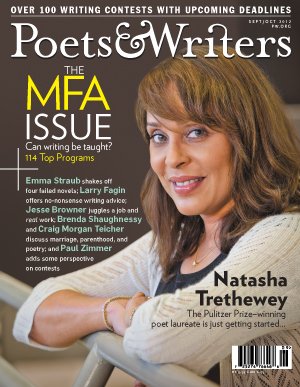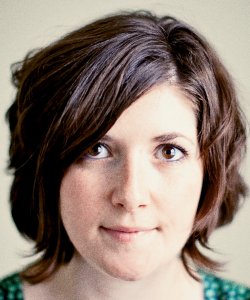
Our sixth annual MFA Issue features a special section on graduate programs in creative writing, including roundups of leading full- and low-residency programs; plus profiles of poet laureate Natasha Trethewey, novelist Emma Straub, and poet Larry Fagin; an essay on marriage, parenthood, and poetry; and more.









